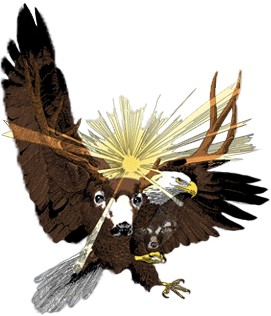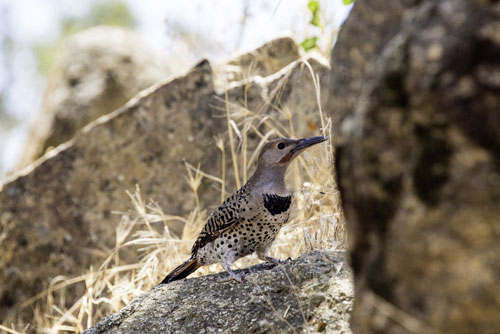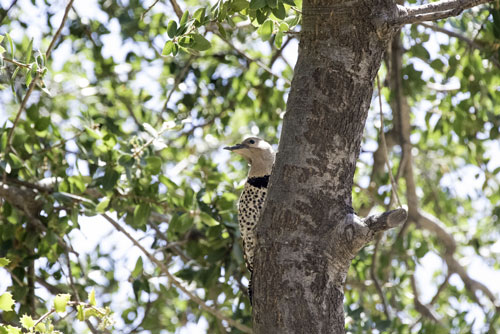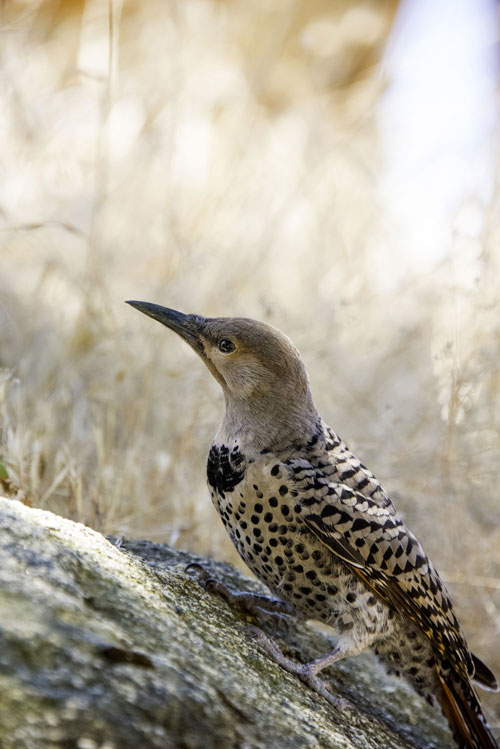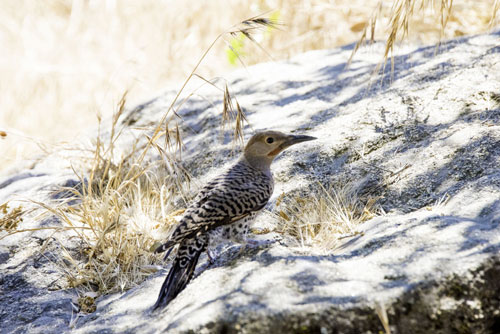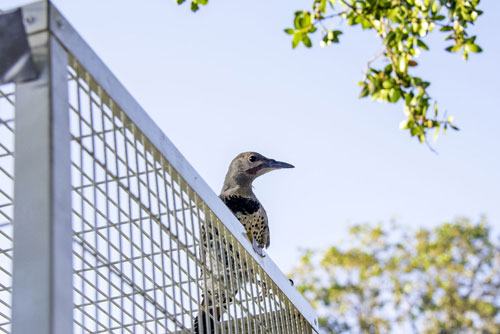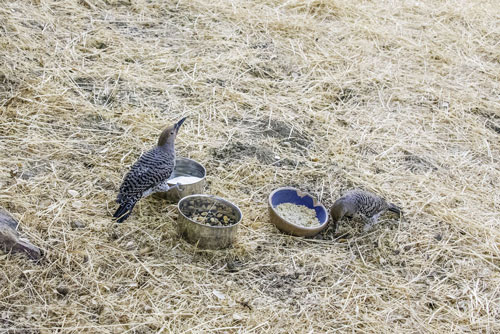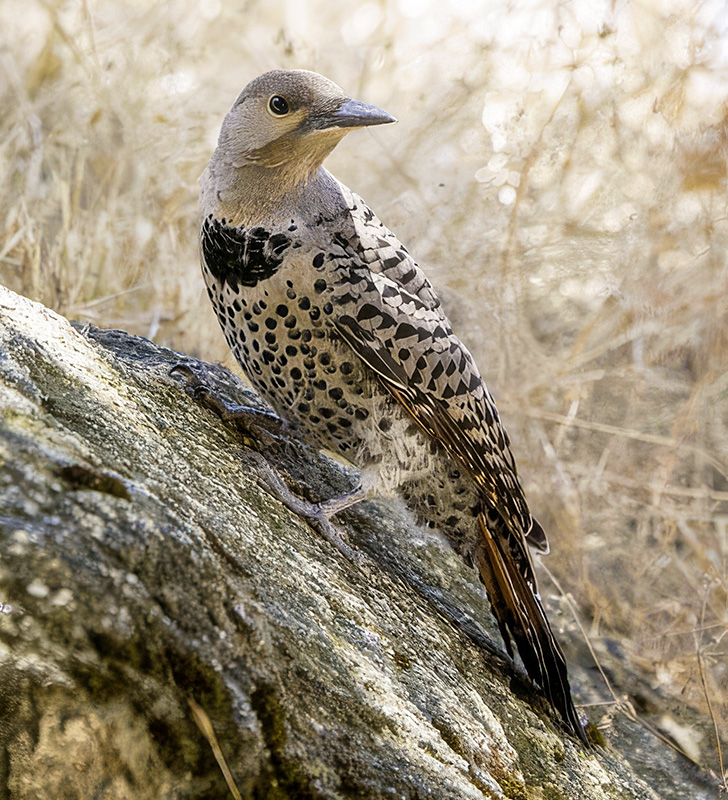FRESNO WILDLIFE REHABILITATION SERVICE
Northern Flicker
Four baby Northern Flickers (a type of woodpecker) were discovered in an Oakhurst cabin in late May and given to Fresno Wildlife Rehab on June 6 at about 10 days old. One baby endured a wing injury and had to be euthanized. The other three were raised in a home for about 4 weeks. As they got bigger and ready to fly, they were given a larger space to fly and lots of local oak wood pieces to practice pecking and foraging.
They were soft-released on July 2 on a 5-acre treed property in Tollhouse. A soft release is when you still provide food and water for as long as the babies need while they learn to be independent.
An interesting note: It wasn't just food and water the babies needed for a couple of weeks, they also needed the company of their foster mom to build their confidence in the wild. They enjoyed it when I hung around them for a while each day as they chatted and practiced foraging with me. After the first week of release, they appeared to need less and less of this type of emotional support. I am currently in the 2nd week of release and I think they will be on their own after this week.
Northern Flicker Fun Facts: (source: All About Birds, The Cornell Lab of Ornithology)
• Although it can climb up the trunks of trees and hammer on wood like other woodpeckers, the Northern Flicker prefers to find food on the ground. Ants are its main food, and the flicker digs in the dirt to find them. It uses its long barbed tongue to lap up the ants.
• The Northern Flicker is one of the few North American woodpeckers that is strongly migratory. Flickers in the northern parts of their range move south for the winter, although a few individuals often stay rather far north.
• Northern Flickers are widespread and common, but numbers decreased by almost 1.5% per year between 1966 and 2012, resulting in a cumulative decline of 49%, according to the North American Breeding Bird Survey. Partners in Flight estimates a global breeding population of 9 million with 78% spending some part of the year in the U.S., 42% in Canada, and 8% in Mexico. They rate a 10 out of 20 on the Continental Concern Score and are listed as a Common Bird in Steep Decline.
Address
P.O. Box 2605
Clovis, CA 93613
